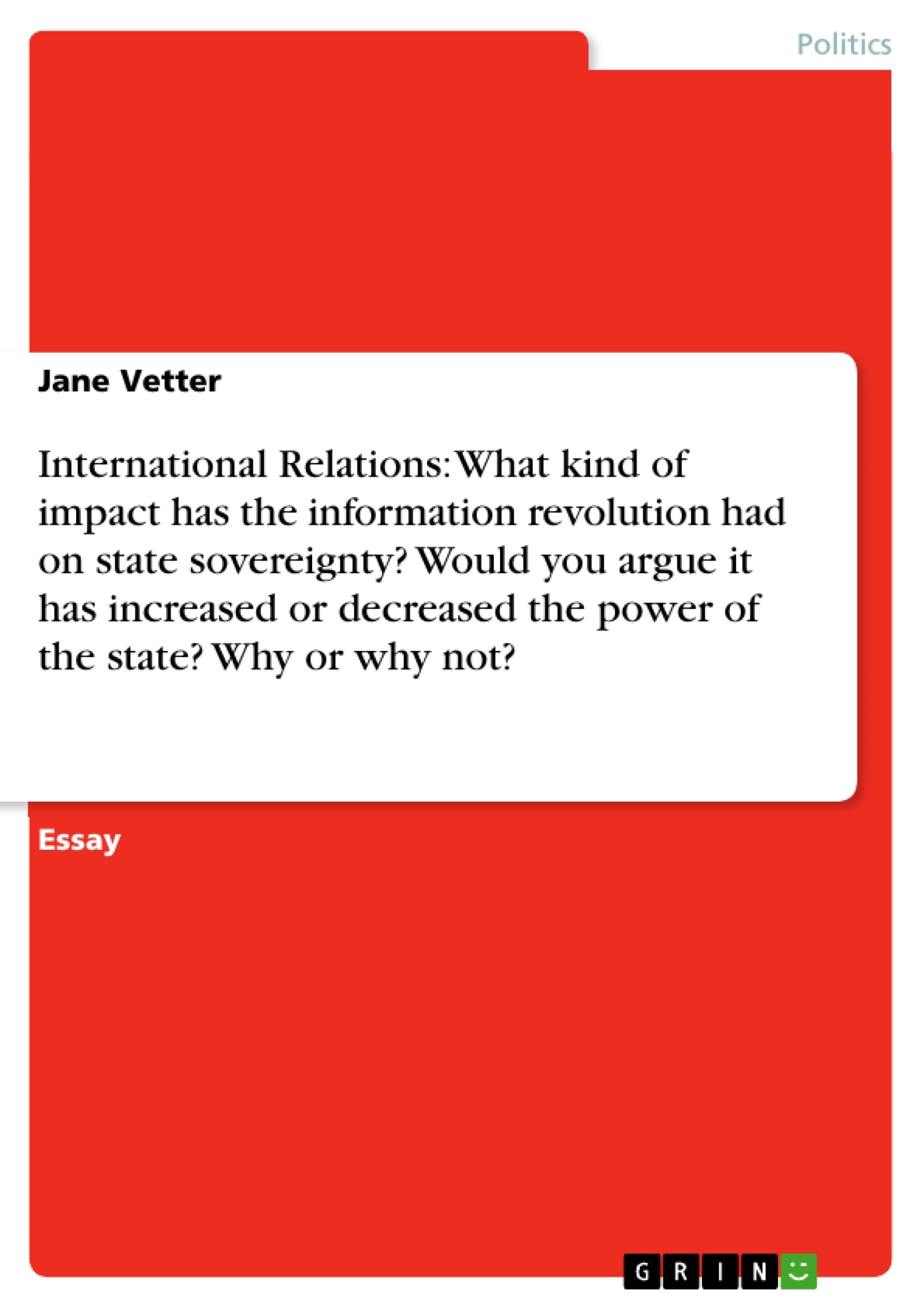The contemporary information revolution is due to technological progress in the computing and communication sector that, simultaneously, cheapened and simplified access to information (Nye 234). With the help of the internet and access to millions of websites, online news live streams, so-called podcasts and blogs, an enormous audience is now able to get information fast and everywhere due to the availability of laptops, broadband connections, wireless networks and internet cafés. As a result of focusing on cost rather than speed, the information revolution leads to “an explosion of information” and “is changing the nature of governments and sovereignty and creating a diffusion of power” (Nye 234). Joseph Nye, Dean of the Kennedy School of Government at Harvard University, equates this event with a third industrial revolution, therefore following the application of steam and the invention of the internal combustion engine (235). While Walter Wriston, former Chairman and CEO of Citibank and economic advisor to the Reagan administration, also lists the agricultural revolution as precursor, he states that “the third revolution enables the citizen to watch Big Brother” (172).
Table of Contents
- The Information Revolution and State Sovereignty
- Defining Sovereignty and the Information Revolution
- The Impact of the Information Revolution on Sovereignty
- Power, Sovereignty, and the Information Revolution
Objectives and Key Themes
This essay explores the impact of the information revolution on state sovereignty. It examines how access to information has changed the relationship between governments and citizens, and the implications for the power of the state in a globalized world.- The influence of the information revolution on state sovereignty
- The role of the information revolution in decentralizing governmental influence
- The relationship between the information revolution and the power of the state
- The changing nature of threats in the information age
- The role of soft power in the context of the information revolution
Chapter Summaries
- The Information Revolution and State Sovereignty: This section defines sovereignty and the information revolution, highlighting the rapid growth of information technology and its impact on communication and access to information. It also explores how the information revolution challenges traditional notions of sovereignty.
- The Impact of the Information Revolution on Sovereignty: This section discusses the influence of the information revolution on sovereignty, emphasizing how it has decentralized governmental influence and introduced new layers of governance. It also highlights the role of non-state actors and the challenges of controlling information flows.
- Power, Sovereignty, and the Information Revolution: This section delves into the relationship between power, sovereignty, and the information revolution. It examines the concepts of hard power and soft power, and how the information revolution has impacted both. It also discusses the potential for states to harness the information revolution to their advantage.
Keywords
This essay delves into the complex relationship between state sovereignty and the information revolution. Key concepts explored include: state sovereignty, information revolution, decentralization, soft power, hard power, non-state actors, globalization, and global governance.- Quote paper
- Jane Vetter (Author), 2007, International Relations: What kind of impact has the information revolution had on state sovereignty? Would you argue it has increased or decreased the power of the state? Why or why not?, Munich, GRIN Verlag, https://www.grin.com/document/116463




